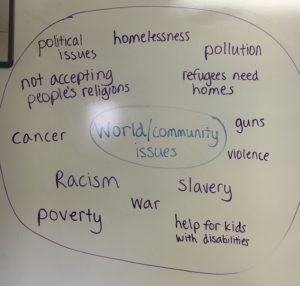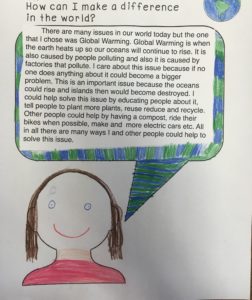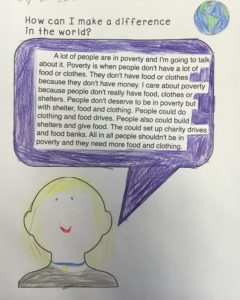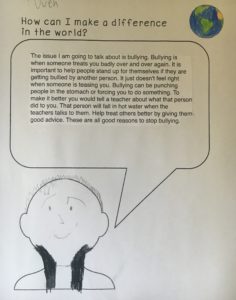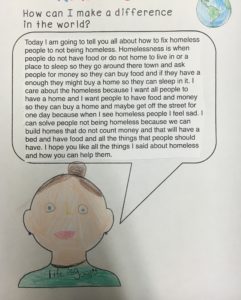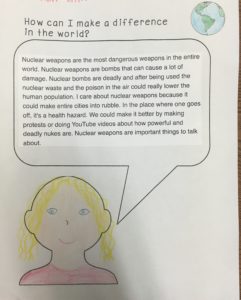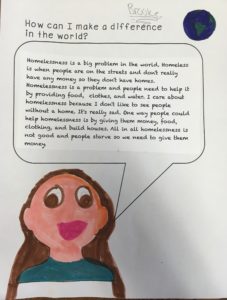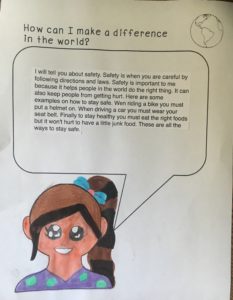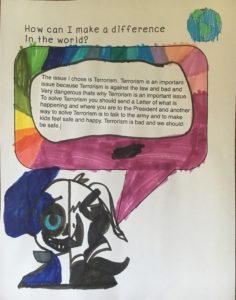Some people thrive on being nonstop at work. That’s how I am. Sure, I like having enough time to get things done, and no, I don’t like the feeling of stress – but I do, and always have, love the feeling of a ton going on, moving nonstop, being constantly challenged and stimulated. Extroverts gain energy in social situations; it’s helpful and necessary for them. I’m no extrovert, but that’s what it’s like for me at work. I thrive off of more more more. It’s like a high, quite honestly.
So the beginning of the year, in the field of education, has always been perfect for someone like me.
Until I had a baby.
Turns out, when you have a 3-month-old and the chaos of the year is beginning, you can’t give 10000% to work. You can’t stay up late scheduling. You can’t have hour-long phone calls with colleagues trying to problem-solve things each day. You can’t answer every email immediately. You can’t stay at work until 6pm if you need to and you can’t get to work at 6am to get everything done.
Instead, you run around like crazy – crazier than ever – all day long. You desperately try to fit everything in, both job responsibilities and mommy ones. You expend every single possible ounce of energy, answering multiple emails while listening to voicemails and planning for sessions and answering colleague questions. You leave work so depleted you could collapse on the ground, because you are so exhausted, and the amount of energy output has already far surpassed what you started with.
And for a split second you think, Thank heavens the day is over; I am going to pass out on the couch. But then you remember that instead of napping, or running errands, or cooking, or cleaning, or doing more work at home, you need to be 10000% on, because now it’s time to be a mom. You panic a little, because you’re so drained you can’t see straight, and how are you supposed to stay awake until she goes to bed at 8:00, let alone be a good mother in the meantime?
You halfheartedly play and bounce and sing and soothe while trying to do dishes and pack lunches for tomorrow and put away laundry and wash her pooped-all-over clothes. You feel guilty that the kitties are meowing for attention and you literally do not have time or energy to pet them. You question if you’re being a good-enough mother, paying enough attention, giving enough love. You remember you have to eat dinner so you have a bowl of cereal. You try to answer work emails and texts from colleagues. Your husband finally comes home and all you want to do is spend time with him, but now it’s 8pm and she needs to nurse and go to bed, and by the time she’s done you contemplate not even brushing your teeth and instead just passing out. And she wakes up three times in the middle of the night because she’s the best baby ever but not the best sleeper, and then it’s 5am and time to do it all over again.
And nothing feels complete, even when you check it off your to-do list, because for every question you answer there are more and every problem solved there are more and every session planned for there are more.
So you text a friend who is like you in every way possible and you say, “I’m drowning. Tell me it gets easier.”
She says it does. You bitterly smile, and then your eyes well up, because you know she must be right but you just can’t see it.
Blind faith leap of faith drop the rope trust hope breathe.
—
And it did get better. It’s still hard. It’s hard every single day. Some days I call my mom and panic, “I’m so tired I can’t see straight – how am I supposed to get through the day?” But routines have begun to emerge, and every so often she sleeps better. And most days I enjoy half-caf coffee, and I shower at night instead of in the morning, and the little things help. And my husband is so supportive and my family is so supportive and some people Get It and those are the ones I lean on. And some days I am not fully planned for sessions but I’m a skilled SLP and fully capable of putting a great session together last minute. And that’s okay. And I’ve learned to be even more efficient in the tiny little bit of free time I get throughout the day and somehow, I get done what needs to get done. And I catch up to my life on the weekends and I learn to be okay with the laundry not getting put away until then or the dishwasher not getting emptied until then. And each day I somehow find more energy just when I thought I had none left. Somehow I do become a superwoman and do it all. And my baby is a healthy, and happy, and thriving 4-month-old and really that’s all that matters.
So, real talk:
It’s hard, it’s so hard, and I think I wish I had known how hard it would be. But it gets better.

